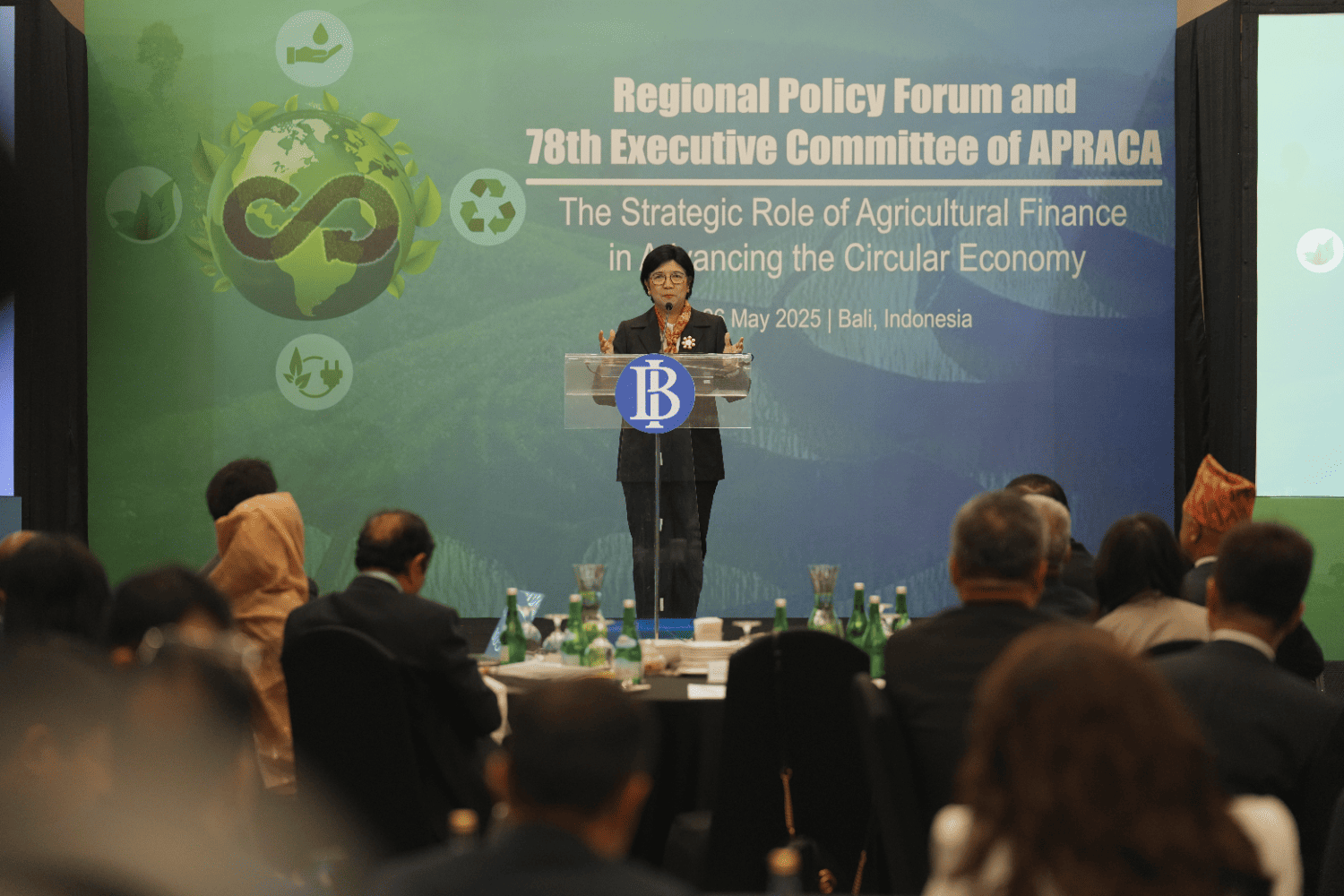Bank Indonesia recognizes the urgent need to optimize resource use and mitigate climate change impacts on agriculture by promoting a circular economy approach. This model moves beyond the linear “take-make-dispose” system towards natural regeneration, supporting global climate commitments and Sustainable Development Goals.
This theme was central to the Asia-Pacific Rural and Agricultural Credit Association (APRACA) Regional Policy Forum and the 78th Executive Committee Meeting held in Bali (26/5).
Deputy Governor Senior Destry Damayanti outlined three strategic actions for financial sector players: expanding access to financing by developing innovative solutions to overcome collateral barriers; creating financial products aligned with circular economy principles; and enhancing the capacity of rural financial institutions to assess climate-friendly and nontraditional circular business models.
Key Policies Supporting Sustainable and Inclusive Agricultural Financing
Bank Indonesia has taken active steps to support the circular economy through policies such as macroprudential measures encouraging sustainable financing, promoting digital financial inclusion for farmers via the national QR code payment system (QRIS) free of charge for micro and small enterprises, and developing cluster-based financing models through partnerships with strategic institutions.
One example is Desa Penglipuran in Bali, serving as a model integrating tourism and circular agriculture, supported by an inclusive digital payment ecosystem.
Strategic Importance of Circular Economy in Agriculture from APRACA Leadership
Mr. Qian Wenhui, Chairman of the Agricultural Development Bank of China and APRACA Chairman, highlighted three key strategic meanings of circular economy in agriculture:
- Addressing natural resource limitations by applying closed-loop systems that transform waste into valuable resources, reducing environmental pressure.
- Supporting food security through sustainable agricultural practices such as substituting chemical pesticides with environmentally friendly alternatives and using intercropping systems.
- Contributing to climate targets by reusing agricultural waste, utilizing biogas, reducing greenhouse gas emissions, and protecting biodiversity.
APRACA’s Mission and Regional Participation in Sustainable Agricultural Finance
APRACA is an international forum with 95 member institutions from 24 Asia-Pacific countries, including regulators and financial institutions. It aims to foster cooperation and facilitate exchange of information and expertise in rural and agricultural financing.
The recent forum in Bali also featured Deputy Governors from the Bangladesh Bank, the National Bank of Cambodia, and Nepal Rastra Bank.
PHOTO: BANK INDONESIA
This article was created with AI assistance.
Read More






 Saturday, 31-01-26
Saturday, 31-01-26







